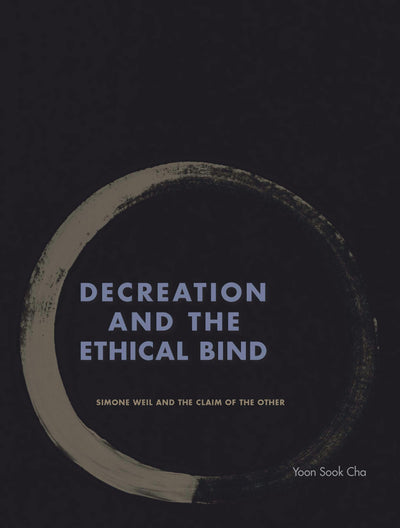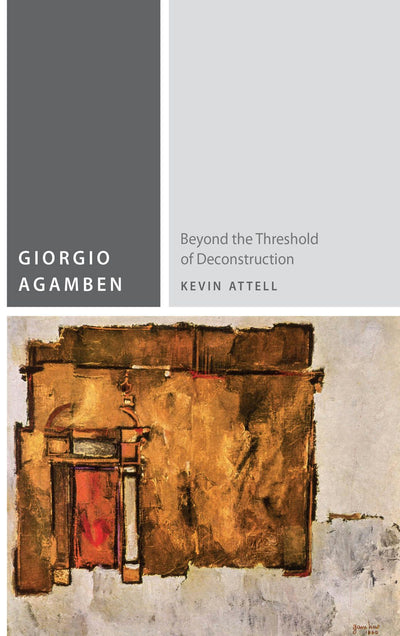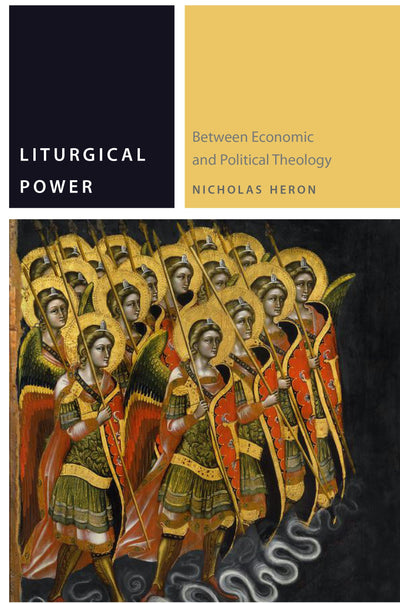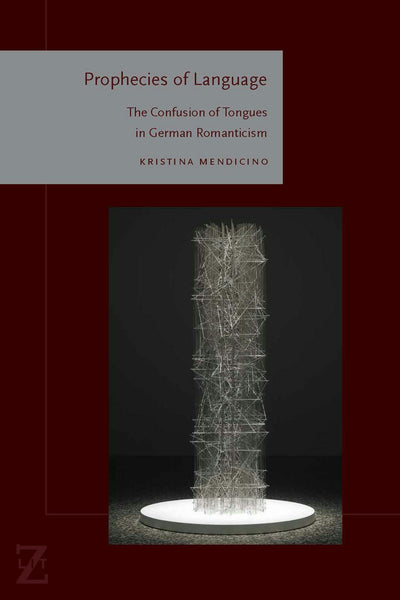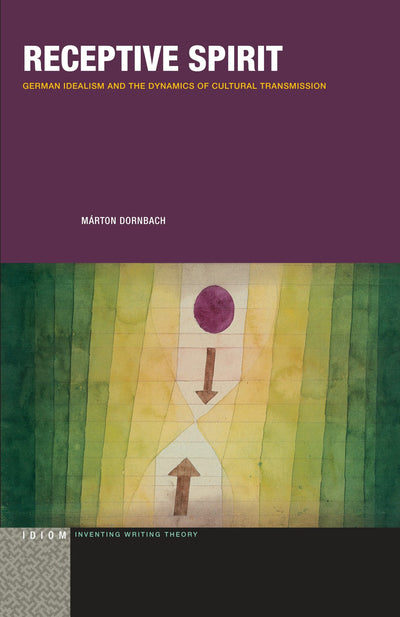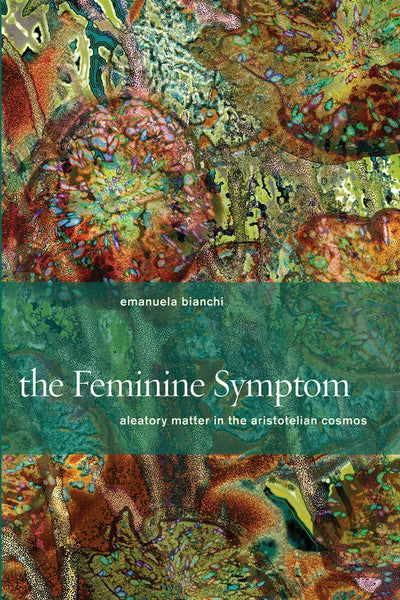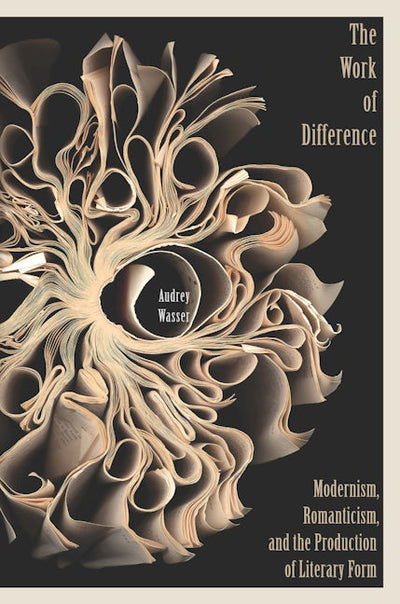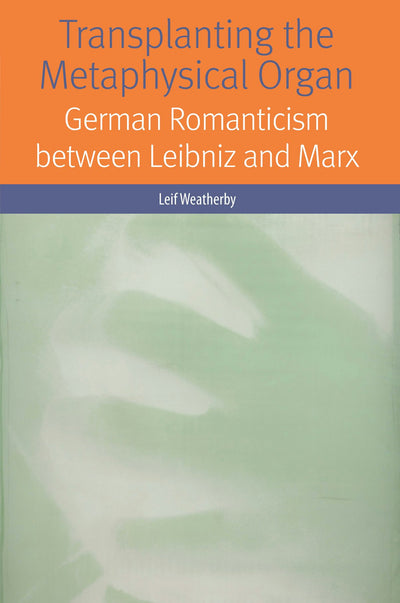-
Antiques & Collectibles
-
Architecture
-
Bibles
-
Biography & Autobiography
-
Body, Mind & Spirit
-
Comics & Graphic Novels
-
Crafts & Hobbies
-
Design
-
All collections
-
Foreign Language Study
-
Games & Activities
-
Gardening
-
House & Home
-
Humor
-
Language Arts & Disciplines
-
Literary Collections
-
Mathematics
-
Miscellaneous
-
Nature
-
Pets
-
Philosophy
-
Photography
-
Poetry
-
Reference
-
Self-Help
-
Study Aids
-
Transportation
-
True Crime
-
Antiques & Collectibles
-
Architecture
-
Bibles
-
Biography & Autobiography
-
Body, Mind & Spirit
-
Comics & Graphic Novels
-
Crafts & Hobbies
-
Design
-
All collections
-
Foreign Language Study
-
Games & Activities
-
Gardening
-
House & Home
-
Humor
-
Language Arts & Disciplines
-
Literary Collections
-
Mathematics
-
Miscellaneous
-
Nature
-
Pets
-
Philosophy
-
Photography
-
Poetry
-
Reference
-
Self-Help
-
Study Aids
-
Transportation
-
True Crime
A Common Strangeness
Regular price $75.00 Save $-75.00Why is our world still understood through binary oppositions—East and West, local and global, common and strange—that ought to have crumbled with the Berlin Wall? What might literary responses to the events that ushered in our era of globalization tell us about the rhetorical and historical underpinnings of these dichotomies?
In A Common Strangeness, Jacob Edmond exemplifies a new, multilingual and multilateral approach to literary and cultural studies. He begins with the entrance of China into multinational capitalism and the appearance of the Parisian flâneur in the writings of a Chinese poet exiled in Auckland, New Zealand. Moving among poetic examples in Russian, Chinese, and English, he then traces a series of encounters shaped by economic and geopolitical events from the Cultural Revolution, perestroika, and the June 4 massacre to the collapse of the Soviet Union, September 11, and the invasion of Iraq. In these encounters, Edmond tracks a shared concern with strangeness through which poets contested old binary oppositions as they reemerged in new, post-Cold War forms.

Alexandrian Cosmopolitanism
Regular price $77.00 Save $-77.00Interrogating how Alexandria became enshrined as the exemplary cosmopolitan space in the Middle East, this book mounts a radical critique of Eurocentric conceptions of cosmopolitanism. The dominant account of Alexandrian cosmopolitanism elevates things European in the city’s culture and simultaneously places things Egyptian under the sign of decline. The book goes beyond this civilization/barbarism binary to trace other modes of intercultural solidarity.
Halim presents a comparative study of literary representations, addressing poetry, fiction, guidebooks, and operettas, among other genres. She reappraises three writers—C. P. Cavafy, E. M. Forster, and Lawrence Durrell—who she maintains have been cast as the canon of Alexandria. Attending to issues of genre, gender, ethnicity, and class, she refutes the view that these writers’ representations are largely congruent and uncovers a variety of positions ranging from Orientalist to anticolonial. The book then turns to Bernard de Zogheb, a virtually unpublished writer, and elicits his camp parodies of elite Levantine mores in operettas, one of which centers on Cavafy. Drawing on Arabic critical and historical texts, as well as contemporary writers’ and filmmakers’ engagement with the canonical triumvirate, Halim orchestrates an Egyptian dialogue with the
European representations.

Apocalyptic Futures
Regular price $95.00 Save $-95.00In this book, the author argues that certain modern literary texts have apocalyptic futures. Rather than claim that great writers have clairvoyant powers, he examines the ways in which a text incorporates an apocalyptic event into its future reception. He is thus concerned with the way in which apocalyptic works solicit their future receptions.
Apocalyptic Futures also sets out to articulate a new theory and textual practice of the relation between literary reception and embodiment. Deploying the double register of “marks” to show how a text both codes and targets mutilated bodies, the author focuses on how these bodies are incorporated into texts by Kafka, Conrad, Coetzee, and Spiegelman.
Situating “In the Penal Colony” in relation to the Holocaust, Heart of Darkness to the Rwandan genocide, and Waiting for the Barbarians to the revelations of torture in apartheid South Africa and contemporary Iraq, the author argues for the ethical and political importance of reading these literary works’ “apocalyptic futures” in our own urgent and perilous situations. The book concludes with a reading of Spiegelman's Maus that offers a messianic counter-time to the law of apocalyptic incorporation.

Art Without an Author
Regular price $105.00 Save $-105.00Why is the history of art so often construed as a history of artists, when its alleged focus is art? This book responds to this question by examining Giorgio Vasari’s Lives and the artist it features most centrally, Michelangelo.
Printed in Florence in 1550 and republished in a substantially enlarged form in 1568, the Lives is a compendium of biographies of the most noteworthy artists, from the late Middle Ages to Vasari’s time. Perhaps no other text has exerted such a formidable influence on the discipline of art history, shaping its historical and conceptual categories—principally as an effect of its biographical format and the biological model it follows, charting artistic development from birth through decline.
More than any other artist in the Lives, Michelangelo exemplifies art as an expression of the individual. Yet at the same time, as this book aims to show, the Lives fashions Michelangelo as the founder of a new academic era in which art develops collectively as a discipline. Paradoxically, Vasari’s celebration of Michelangelo mobilizes a conception of art as teachable and transmissible that is antithetical to Michelangelo’s aesthetic ideals and unique style.
Each of the five chapters of this book examines the notion of “art without an author,” whereby art is teachable and not the inimitable product of a genius, or a corporate rather than an individualistic venture. By tracing Vasari’s transformation of Michelangelo from an artist into a figure who legitimates a new age in art, the book bridges a longstanding dichotomy in our understanding not only of Vasari but also of Renaissance culture and art.
The claims Art Without an Author makes are integrally supported by art historical research and textual/philological analysis. By way of close study, this book reaches entirely new conclusions about Michelangelo, the production and significance of Vasari’s Lives, and the role “authorial” values play in Italian Renaissance culture.

At Freedom's Limit
Regular price $65.00 Save $-65.00The subject of this book is a new “Islam.” This Islam began to take shape in 1988 around the Rushdie affair, the collapse of the Berlin Wall in 1989, and the first Gulf War of 1991. It was consolidated in the period following September 11, 2001. It is a name, a discursive site, a signifier at once flexible and constrained—indeed, it
is a geopolitical agon, in and around which some of the most pressing aporias of modernity, enlightenment, liberalism, and reformation are worked out.
At this discursive site are many metonyms for Islam: the veiled or “pious” Muslim woman, the militant, the minority Muslim injured by Western free speech. Each of these figures functions as a cipher enabling repeated encounters with the question “How do we free ourselves from freedom?” Again and again, freedom is imagined as Western, modern, imperial—a dark imposition of Enlightenment. The pious and injured Muslim who desires his or her own enslavement is imagined as freedom’s other.
At Freedom’s Limit is an intervention into current debates regarding religion, secularism, and Islam and provides a deep critique of the anthropology and sociology of Islam that have consolidated this formation. It shows that, even as this Islam gains increasing traction in cultural production from television shows to movies to novels, the most intricate contestations of Islam so construed are to be found in the work of Muslim writers and painters.
This book includes extended readings of jihadist proclamations; postcolonial law; responses to law from minorities in Muslim-majority societies; Islamophobic films; the novels of Leila Aboulela, Mohammed Hanif, and Nadeem Aslam; and the paintings of Komail Aijazuddin.

Beyond the Mother Tongue
Regular price $80.00 Save $-80.00
Bilingual Brokers
Regular price $90.00 Save $-90.00Reading Asian American and Latino literature, Bilingual Brokers traces the shift in attitudes toward bilingualism in postwar America from the focus on cultural assimilation to that of resource management. Interweaving the social significance of language as human capital and the literary significance of English as the language of cultural capital, Jeehyun Lim examines the dual meaning of bilingualism as liability and asset in relation to anxieties surrounding “new” immigration and globalization.
Using the work of Younghill Kang, Carlos Bulosan, Américo Paredes, Maxine Hong Kingston, Richard Rodriguez, Chang-rae Lee, Julia Alvarez, and Ha Jin as examples, Lim reveals how bilingual personhood illustrates a regime of flexible inclusion where an economic calculus of one’s value crystallizes at the intersections of language and racial difference. By pointing to the nexus of race, capital, and language as the focal point of postwar negotiations of difference and inclusion, Bilingual Brokers probes the faultlines of postwar liberalism in conceptualizing and articulating who is and is not considered to be an American.

Celebricities
Regular price $100.00 Save $-100.00
Cinepoetry
Regular price $60.00 Save $-60.00Cinepoetry analyzes how French poets have remapped poetry through the lens of cinema for more than a century. In showing how poets have drawn on mass culture, technology, and material images to incorporate the idea, technique, and experience of cinema into writing, Wall-Romana documents the long history of cross-media concepts and practices often thought to emerge with the digital.
In showing the cinematic consciousness of Mallarmé and Breton and calling for a reappraisal of the influential poetry theory of the early filmmaker Jean Epstein, Cinepoetry reevaluates the bases of literary modernism. The book also explores the crucial link between trauma and trans-medium experiments in the wake of two world wars and highlights the marginal identity of cinepoets who were often Jewish, gay, foreign-born, or on the margins.
What results is a broad rethinking of the relationship between film and literature. The episteme of cinema, the book demonstates, reached the very core of its supposedly highbrow rival, while at the same time modern poetry cultivated the technocultural savvy that is found today in slams, e-poetry, and poetic-digital hybrids.

Committing the Future to Memory
Regular price $80.00 Save $-80.00Whereas historical determinacy conceives the past as a complex and unstable network of causalities, this book asks how history can be related to a more radical future. To pose that question, it does not reject determinacy outright but rather seeks to explore how it works. In examining what it means to be “determined” by history, it also asks what kind of openings there might be in our encounters with history for interruptions, re-readings, and re-writings.
Engaging texts spanning multiple genres and several centuries—from John Locke to Maurice Blanchot, from Hegel to Benjamin—Clift looks at experiences of time that exceed the historical narration of experiences said to have occurred in time. She focuses on the co-existence of multiple temporalities and opens up the quintessentially modern notion of historical succession to other possibilities. The alternatives she draws out include the mediations of language and narration, temporal leaps, oscillations and blockages, and the role played by contingency in representation. She argues that such alternatives compel us to reassess the ways we understand history and identity in a traumatic, or indeed in a post-traumatic, age.

Constellation
Regular price $50.00 Save $-50.00Constellation is the first extended exploration of the relationship between Walter Benjamin, the Weimar-era revolutionary cultural critic, and the radical philosopher Friedrich Nietzsche. The affinity between these noncontemporaneous thinkers serves as a limit case manifesting the precariousness and potentials of cultural transmission in a disillusioned present.
In five chapters, Constellation presents the changing figure of Nietzsche as Benjamin encountered him: an inspiration to his student activism, an authority for his skeptical philology, a manifestation of his philosophical nihilism, a companion in his political exile, and ultimately a subversive collaborator in his efforts to think beyond the hopeless temporality—new and always the same—of the present moment in history.

Dante and the Dynamics of Textual Exchange
Regular price $55.00 Save $-55.00
Decreation and the Ethical Bind
Regular price $45.00 Save $-45.00In Simone Weil’s philosophical and literary work, obligation emerges at the conjuncture of competing claims: the other’s self-affirmation and one’s own dislocation; what one has and what one has to give; a demand that asks for too much and the extraordinary demand implied by asking nothing. The other’s claims upon the self—which induce unfinished obligation, unmet sleep, hunger—drive the tensions that sustain the scene of ethical relationality at the heart of this book.
Decreation and the Ethical Bind is a study in decreative ethics in which self-dispossession conditions responsiveness to a demand to preserve the other from harm. In examining themes of obligation, vulnerability, and the force of weak speech that run from Levinas to Butler, the book situates Weil within a continental tradition of literary theory in which writing and speech articulate ethical appeal and the vexations of response. It elaborates a form of ethics that is not grounded in subjective agency and narrative coherence but one that is inscribed at the site of the self’s depersonalization.

Empire's Wake
Regular price $55.00 Save $-55.00Shedding new light on the rich intellectual and political milieux shaping the divergent legacies of Joyce and Yeats, Empire’s Wake traces how a distinct postcolonial modernism emerged within Irish literature in the late 1920s to contest and extend key aspects of modernist thought and aesthetic innovation at the very moment that the high modernist literary canon was consolidating its influence and prestige.
By framing its explorations of postcolonial narrative form against the backdrop of distinct historical moments from the Irish Free State to the Celtic Tiger era, the book charts the different phases of 20th-century postcoloniality in ways that clarify how the comparatively early emergence of the postcolonial in Ireland illuminates the formal shifts accompanying the transition from an age of empire to one of globalization.
Bringing together new perspectives on Beckett and Joyce with analyses of the critically neglected works of Sean O’Faoláin, Frank McCourt, and the Blasket autobiographers, Empire’s Wake challenges the notion of a singular “global modernism” and argues for the importance of critically integrating the local and the international dimensions of modernist aesthetics.

Fictitious Capital
Regular price $90.00 Save $-90.00The ups and downs of silk, cotton, and stocks syncopated with serialized novels in the late-nineteenth-century Arabic press: Time itself was changing. Novels of debt, dissimulation, and risk begin to appear in Arabic at a moment when France and Britain were unseating the Ottoman legacy in Beirut, Cairo, and beyond. Amid booms and crashes, serialized Arabic fiction and finance at once tell the other’s story.
While scholars of Arabic often write of a Nahdah, a sense of renaissance, Fictitious Capital argues instead that we read the trope of Nahdah as Walter Benjamin might have, as “one of the monuments of the bourgeoisie that [are] already in ruins.” Financial speculation engendered an anxious mixture of hope and fear formally expressed in the mingling of financial news and serialized novels in such Arabic journals as Al-Jinān, Al-Muqtataf, and Al-Hilāl. Holt recasts the historiography of the Nahdah, showing its sense of rise and renaissance to be a utopian, imperially mediated narrative of capital that encrypted its inevitable counterpart, capital flight.

Genealogies of Fiction
Regular price $65.00 Save $-65.00Genealogies of Fiction is a study of gender, dynastic politics, and intertextuality in medieval and renaissance chivalric epic, focused on Ludovico Ariosto’s Orlando furioso. Relying on the direct study of manuscripts and incunabula, this project challenges the fixed distinction between medieval and early modern texts and
reclaims medieval popular epic as a key source for the Furioso.
Tracing the formation of the character of the warrior woman, from the Amazon to Bradamante, the book analyzes the process of gender construction in early modern Italy. By reading the tension between the representations of women as fighters, lovers, and mothers, this study shows how the warrior woman is a symbolic center for the construction of legitimacy in the complex web of fears and expectations of the
Northern Italian Renaissance court.

Giorgio Agamben
Regular price $70.00 Save $-70.00Agamben’s thought has been viewed as descending primarily from the work of Heidegger, Benjamin, and, more recently, Foucault. This book complicates and expands that constellation by showing how throughout his career Agamben has consistently and closely engaged (critically, sympathetically, polemically, and often implicitly) the work of Derrida as his chief contemporary interlocutor.
The book begins by examining the development of Agamben’s key concepts—infancy, Voice, potentiality—from the 1960s to approximately 1990 and shows how these concepts consistently draw on and respond to specific texts and concepts of Derrida. The second part examines the political turn in Agamben’s and Derrida’s thinking from about 1990 onward, beginning with their investigations of sovereignty and violence and moving through their parallel treatments of juridical power, the relation between humans and animals, and finally messianism and the politics to come.

Hollow Men
Regular price $90.00 Save $-90.00This book relates developments in the visual arts and printing to humanist theories of literary and bodily imitation, bringing together fifteenth- and sixteenth-century frescoes, statues, coins, letters, dialogues, epic poems, personal emblems, and printed collections of portraits. Its interdisciplinary analyses show that Renaissance theories of emulating classical heroes generated a deep skepticism about self-presentation, ultimately contributing to a new awareness of representation as representation.
Hollow Men shows that the Renaissance questioning of “interiority” derived from a visual ideal, the monument that was the basis of teachings about imitation. In fact, the decline of exemplary pedagogy and the emergence of modern masculine subjectivity were well underway in the mid–fifteenth century, and these changes were hastened by the rapid development of the printed image.

Imperial Babel
Regular price $50.00 Save $-50.00At the heart of every colonial encounter lies an act of translation. Once dismissed as a derivative process, the new cultural turn in translation studies has opened the field to dynamic considerations of the contexts that shape translations and that, in turn, reveal translation’s truer function as a locus of power. In Imperial Babel, Padma Rangarajan explores translation’s complex role in shaping literary and political relationships between India and Britain.
Unlike other readings that cast colonial translation as primarily a tool for oppression, Rangarajan’s argues that translation changed both colonizer and colonized and undermined colonial hegemony as much as it abetted it. Imperial Babel explores the diverse political and cultural consequences of a variety of texts, from eighteenth-century oriental tales to mystic poetry of the fin de siecle and from translation proper to its ethnological, mythographic, and religious variants.
Searching for translation’s trace enables a broader, more complex understanding of intellectual exchange in imperial culture as well as a more nuanced awareness of the dialectical relationship between colonial policy and nineteenth-century literature. Rangarajan argues that while bearing witness to the violence that underwrites translation in colonial spaces, we should also remain open to the irresolution of translation, its unfixed nature, and its ability to transform both languages in which it works.

Iterations of Loss
Regular price $85.00 Save $-85.00In a series of exquisite close readings of Arabic and Arab Jewish writing, Jeffrey Sacks considers the relation of poetic statement to individual and collective loss, the dispossession of peoples and languages, and singular events of destruction in the nineteenth, twentieth, and twenty-first centuries. Addressing the work of Mahmoud Darwish, Ahmad Faris al-Shidyaq, Elias Khoury, Edmond Amran El Maleh, Shimon Ballas, and Taha Husayn, Sacks demonstrates the reiterated incursion of loss into the time of life—losses that language declines to mourn. Language occurs as the iteration of loss, confounding its domestication in the form of the monolingual state in the Arabic nineteenth century’s fallout.
Reading the late lyric poetry of the Palestinian poet Mahmoud Darwish in relation to the destruction of Palestine in 1948, Sacks reconsiders the nineteenth century Arabic nahda and its relation to colonialism, philology, and the European Enlightenment. He argues that this event is one of catastrophic loss, wherein the past suddenly appears as if it belonged to another time. Reading al-Shidyaq’s al-Saq ‘ala al-saq (1855) and the legacies to which it points in post-1948 writing in Arabic, Hebrew, and French, Sacks underlines a displacement and relocation of the Arabic word adab and its practice, offering a novel contribution to Arabic and Middle East Studies, critical theory, poetics, aesthetics, and comparative literature.
Drawing on writings of Jacques Derrida, Walter Benjamin, Avital Ronell, Judith Butler, Theodor Adorno, and Edward W. Said, Iterations of Loss shows that language interrupts its pacification as an event of aesthetic coherency, to suggest that literary comparison does not privilege a renewed giving of sense but gives place to a new sense of relation.

Liturgical Power
Regular price $95.00 Save $-95.00Is Christianity exclusively a religious phenomenon, which must separate itself from all things political, or do its concepts actually underpin secular politics? To this question, which animated the twentieth-century debate on political theology, Liturgical Power advances a third alternative. Christian anti-politics, Heron contends, entails its own distinct conception of politics. Yet this politics, he argues, assumes the form of what today we call “administration,” but which the ancients termed “economics.” The book’s principal aim is thus genealogical: it seeks to understand our current conception of government in light of an important but rarely acknowledged transformation in the idea of politics brought about by Christianity.
This transformation in the idea of politics precipitates in turn a concurrent shift in the organization of power; an organization whose determining principle, Heron contends, is liturgy—understood in the broad sense as “public service.” Whereas until now only liturgy’s acclamatory dimension has made the concept available for political theory, Heron positions it more broadly as a technique of governance. What Christianity has bequeathed to political thought and forms, he argues, is thus a paradoxical technology of power that is grounded uniquely in service.

Malicious Objects, Anger Management, and the Question of Modern Literature
Regular price $99.00 Save $-99.00Why do humans get angry with objects? Why is it that a malfunctioning computer, a broken tool, or a fallen glass causes an outbreak of fury? How is it possible to speak of an inanimate object’s recalcitrance, obstinacy, or even malice? When things assume a will of their own and seem to act out against human desires and wishes rather than disappear into automatic, unconscious functionality, the breakdown is experienced not as something neutral but affectively—as rage or as outbursts of laughter. Such emotions are always psychosocial: public, rhetorically performed, and therefore irreducible to a “private” feeling.
By investigating the minutest details of life among dysfunctional household items through the discourses of philosophy and science, as well as in literary works by Laurence Sterne, Jean Paul, Friedrich Theodor Vischer, and Heimito von Doderer, Kreienbrock reconsiders the modern bourgeois poetics that render things the way we know and suffer them.

Marginal Modernity
Regular price $50.00 Save $-50.00Two ways of understanding the aesthetic organization of literary works have come down to us from the late 18th century and dominate discussions of European modernism today: the aesthetics of autonomy, associated with the self-sufficient work of art, and the aesthetics of fragmentation, practiced by the avant-gardes. In this revisionary study, Leonardo Lisi argues that these models rest on assumptions about the nature of truth and existence that cannot be treated as exhaustive of modernist form.
Lisi traces an alternative aesthetics of dependency that provides a different formal structure, philosophical foundation, and historical condition for modernist texts. Taking Europe's Scandinavian periphery as his point of departure, Lisi examines how Søren Kierkegaard and Henrik Ibsen imagined a response to the changing conditions of modernity different from those at the European core, one that subsequently influenced Henry James, Hugo von Hofmannsthal, Rainer Maria Rilke, and James Joyce.
Combining close readings with a broader revision of the nature and genealogy of modernism, Marginal Modernity challenges what we understand by modernist aesthetics, their origins, and their implications for how we conceive of our relation to the modern world.

Post-Mandarin
Regular price $90.00 Save $-90.00Post-Mandarin offers an engaging look at a cohort of Vietnamese intellectuals who adopted European fields of knowledge, a new Romanized alphabet, and print media—all of which were foreign and illegible to their fathers. This new generation of intellectuals established Vietnam’s modern anticolonial literature.
The term “post-mandarin” illuminates how Vietnam’s deracinated figures of intellectual authority adapted to a literary field moving away from a male-to-male literary address toward print culture. With this shift, post-mandarin intellectuals increasingly wrote for and about women.
Post-Mandarin illustrates the significance of the inclusion of modern women in the world of letters: a more democratic system of aesthetic and political representation that gave rise to anticolonial nationalism. This conceptualization of the “post-mandarin” promises to have a significant impact on the fields of literary theory, postcolonial studies, East Asian and Southeast Asian studies, and modernist studies.

Prophecies of Language
Regular price $115.00 Save $-115.00The scenes of Babel and Pentecost, the original confusion of tongues and their redemption through translation, haunt German Romanticism and Idealism. This book begins by retracing the ways in which the task of translation, so crucial to Romantic writing, is repeatedly tied to prophecy, not in the sense of telling future events, but in the sense of speaking in the place of another—most often unbeknownst to the speaker herself. In prophetic speech, the confusion of tongues repeats, each time anew, as language takes place unpredictably in more than one voice and more than one tongue at once.
Mendicino argues that the relation between translation and prophecy drawn by German Romantic writers fundamentally changes the way we must approach this so-called “Age of Translation.” Whereas major studies of the period have taken as their point of departure the opposition of the familiar and the foreign, Mendicino suggests that Romantic writing provokes the questions: how could one read a language that is not one? And what would such a polyvocal, polyglot language, have to say about philology—both for the Romantics, whose translation projects are most intimately related to their philological preoccupations, and for us?
In Prophecies of Language, these questions are pursued through readings of major texts by G.W.F. Hegel, Wilhelm von Humboldt, Friedrich Schlegel, and Friedrich Hölderlin. These readings show how, when one questions the presupposition of works composed by individual authors in one tongue, these texts disclose more than a monoglot reading yields, namely the “plus” of their linguistic plurality. From such a surplus, each chapter goes on to advocate for a philology that, in and through an inclination toward language, takes neither its unity nor its structure for granted but allows itself to be most profoundly affected, addressed—and afflicted—by it.

Receptive Spirit
Regular price $60.00 Save $-60.00Premised on the assumption that the mind is fundamentally active and self-determining, the German Idealist project gave rise to new ways of thinking about our dependence upon culturally transmitted models of thought, feeling, and creativity. Receptive Spirit elucidates the ways in which Kant, Fichte, Schlegel, and Hegel envisioned and enacted the conjunction of receptivity and spontaneous activity in the transmission of human-made models of mindedness. Their innovations have defined the very terms in which we think about the historical character of aesthetic experience, the development of philosophical thinking, the dynamics of textual communication, and the task of literary criticism.
Combining a reconstructive approach to this key juncture of modern thought with close attention paid to subsequent developments, Marton Dornbach argues that we must continue to think within the framework established by the Idealists if we are to keep our bearings in the contemporary intellectual landscape.

Sexagon
Regular price $110.00 Save $-110.00Honorable Mention, Association for Middle East Women’s Studies
Honorable Mention, 2018 Arab American Book Awards (Non-Fiction)
In contemporary France, particularly in the banlieues of Paris, the figure of the young, virile, hypermasculine Muslim looms large. So large, in fact, it often supersedes liberal secular society’s understanding of gender and sexuality altogether. Engaging the nexus of race, gender, nation, and sexuality, Sexagon studies the broad politicization of Franco-Arab identity in the context of French culture and its assumptions about appropriate modes of sexual and gender expression, both gay and straight.
Surveying representations of young Muslim men and women in literature, film, popular journalism, television, and erotica as well as in psychoanalysis, ethnography, and gay and lesbian activist rhetoric, Mehammed Amadeus Mack reveals the myriad ways in which communities of immigrant origin are continually and consistently scapegoated as already and always outside the boundary of French citizenship regardless of where the individuals within these communities were born. At the same time, through deft readings of—among other things—fashion photography and online hook-up sites, Mack shows how Franco-Arab youth culture is commodified and fetishized to the point of sexual fantasy.
Official French culture, as Mack suggests, has judged the integration of Muslim immigrants from North and West Africa—as well as their French descendants—according to their presumed attitudes about gender and sexuality. More precisely, Mack argues, the frustrations consistently expressed by the French establishment in the face of the alleged Muslim refusal to assimilate is not only symptomatic of anxieties regarding changes to a “familiar” France but also indicative of an unacknowledged preoccupation with what Mack identifies as the “virility cultures” of Franco-Arabs, rendering Muslim youth as both sexualized objects and unruly subjects.
The perceived volatility of this banlieue virility serves to animate French characterizations of the “difficult” black, Arab, and Muslim boy—and girl—across a variety of sensational newscasts and entertainment media, which are crucially inflamed by the clandestine nature of the banlieues themselves and non-European expressions of virility. Mirroring the secret and underground qualities of “illegal” immigration, Mack shows, Franco-Arab youth increasingly choose to withdraw from official scrutiny of the French Republic and to thwart its desires for universalism and transparency. For their impenetrability, these sealed-off domains of banlieue virility are deemed all the more threatening to the surveillance of mainstream French society and the state apparatus.

Standing by the Ruins
Regular price $90.00 Save $-90.00Since the mid-1970s, Lebanon has been at the center of the worldwide rise in sectarian extremism. Its cultural output has both mediated and resisted this rise. Standing by the Ruins reviews the role of culture in supporting sectarianism, yet argues for the emergence of a distinctive aesthetic of resistance to it.
Focusing on contemporary Lebanese fiction, film, and popular culture, this book shows how artists reappropriated the twin legacies of commitment literature and the ancient topos of “standing by the ruins” to form a new “elegiac humanism” during the tumultuous period of 1975 to 2005. It redirects attention to the critical role of culture in conditioning attitudes throughout society and is therefore relevant to other societies facing sectarian extremism.
Standing by the Ruins is also a strong intervention in the burgeoning field of World Literature. Elaborating on the great Arabist Hilary Kilpatrick’s crucial insight that ancient Arabic forms and topoi filter into modern literature, the author details how the “standing by the ruins” topos—and the structure of feeling it conditions—has migrated over time. Modern Arabic novels, feature films, and popular culture, far from being simply cultural imports, are hybrid forms deployed to respond to the challenges of contemporary Arab society. As such, they can take their place within a World Literature paradigm: they are cultural products that travel and intervene in the world.

The Death of the Book
Regular price $99.00 Save $-99.00An examination of the ways major novels by Marcel Proust, James Joyce, and Virginia Woolf draw attention to their embodiment in the object of the book, The Death of the Book considers how bookish format plays a role in some of the twentieth century’s most famous literary experiments. Tracking the passing of time in which reading unfolds, these novels position the book’s so-called death in terms that refer as much to a simple description of its future vis-à-vis other media forms as to the sense of finitude these books share with and transmit to their readers.
As he interrogates the affective, physical, and temporal valences of literature’s own traditional format and mode of access, John Lurz shows how these novels stage intersections with the phenomenal world of their readers and develop a conception of literary experience not accounted for by either rigorously historicist or traditionally formalist accounts of the modernist period. Bringing together issues of media and mediation, book history, and modernist aesthetics, The Death of the Book offers a new and deeper understanding of the way we read now.

The Decolonial Abyss
Regular price $90.00 Save $-90.00The Decolonial Abyss probes the ethico-political possibility harbored in Western philosophical and theological thought for addressing the collective experience of suffering, socio-political trauma, and colonial violence. In order to do so, it builds a constructive and coherent thematization of the somewhat obscurely defined and underexplored mystical figure of the abyss as it occurs in Neoplatonic mysticism, German Idealism, and Afro-Caribbean philosophy.
The central question An Yountae raises is, How do we mediate the mystical abyss of theology/philosophy and the abyss of socio-political trauma engulfing the colonial subject? What would theopoetics look like in the context where poetics is the means of resistance and survival? This book seeks to answer these questions by examining the abyss as the dialectical process in which the self’s dispossession before the encounter with its own finitude is followed by the rediscovery or reconstruction of the self.

The Doppelganger
Regular price $99.00 Save $-99.00The Doppelgänger or Double presents literature as the "double" of philosophy. There are historical reasons for this. The genesis of the Doppelgänger is literature's response to the philosophical focus on subjectivity. The Doppelgänger was coined by the German author Jean Paul in 1796 as a critique of Idealism's assertion of subjective autonomy, individuality and human agency. This critique prefigures post-War extrapolations of the subject as decentred. From this perspective, the Doppelgänger has a "family resemblance" to current conceptualizations of subjectivity. It becomes the emblematic subject of modernity.
This is the first significant study on the Doppelgänger's influence on philosophical thought. The Doppelgänger emerges as a hidden and unexplored element both in conceptions of subjectivity and in philosophy's relation to literature. Vardoulakis demonstrates this by employing the Doppelgänger to read literature philosophically and to read philosophy as literature. The Doppelgänger then appears instrumental in the self-conception of both literature and philosophy.

The Entrapments of Form
Regular price $85.00 Save $-85.00
The Feminine Symptom
Regular price $85.00 Save $-85.00The first English-language study of Aristotle’s natural philosophy from a continental perspective, the Feminine Symptom takes as its starting point the problem of female offspring. If form is transmitted by the male and the female provides only matter, how is a female child produced? Aristotle answers that there must be some fault or misstep in the process.
This inexplicable but necessary coincidence—sumptoma in Greek—defines the feminine symptom. Departing from the standard associations of male-activity-form and female-passivity-matter, Bianchi traces the operation of chance and spontaneity throughout Aristotle’s biology, physics, cosmology, and metaphysics and argues that it is not passive but aleatory matter— unpredictable, ungovernable, and acting against nature and teleology—that he continually allies with the feminine.
Aristotle’s pervasive disparagement of the female as a mild form of monstrosity thus works to shore up his polemic against the aleatory and to consolidate patriarchal teleology in the face of atomism and Empedocleanism.
Bianchi concludes by connecting her analysis to recent biological and materialist political thinking, and makes the case for a new, antiessentialist politics of aleatory feminism.

The Forgiveness to Come
Regular price $95.00 Save $-95.00This book is concerned with the aporias, or impasses, of forgiveness, especially in relation to the legacy of the crimes against humanity perpetrated by the Nazis and their collaborators during World War II. Banki argues that, while forgiveness of the Holocaust is and will remain impossible, we cannot rest upon that impossibility. Rather, the impossibility of forgiveness must be thought in another way. In an epoch of “worldwidization,” we may not be able simply to escape the violence of scenes and rhetoric that repeatedly portray apology, reconciliation, and forgiveness as accomplishable acts.
Accompanied by Jacques Derrida’s thought of forgiveness of the unforgivable, and its elaboration in relation to crimes against humanity, the book undertakes close readings of literary, philosophical, and cinematic texts by Simon Wiesenthal, Jean Améry, Vladimir Jankélévitch, Robert Antelme and Eva Mozes Kor. These texts contend with the idea that the crimes of the Nazis are inexpiable, that they lie beyond any possible atonement or repair. Banki argues that the juridical concept of crimes against humanity calls for a thought of forgiveness—one that would not imply closure of the infinite wounds of the past. How could such a forgiveness be thought or dreamed? Banki shows that if today we cannot simply escape the “worldwidization” of forgiveness, then it is necessary to rethink what forgiveness is, the conditions under which it supposedly takes place, and especially its relation to justice.

The Future Life of Trauma
Regular price $90.00 Save $-90.00The Future Life of Trauma elaborates a transformation in the concepts of trauma and event by situating a groundbreaking encounter between psychoanalytic and postcolonial discourse. Proceeding from the formation of psychical life as presented in the Freudian metapsychology, it thinks anew the relation between temporality and traumatized subjectivity, demonstrating how the psychic event, as a traumatic event, is a material reality that alters the character of the structure of repetition.
By examining the role of borders in the history of the 1947 partition of British India and the politics of memorialization in postgenocide Rwanda, The Future Life of Trauma brings to light the implications of trauma as a material event in contemporary nation-formation, sovereignty, and geopolitical violence. In showing how the form of the psyche changes in the encounter, it presents a challenge to the category of difference in the condition of identity, resulting in the formation of a concept of life that elaborates a new relation to destruction and finitude by asserting its power to transform itself.

The Historical Uncanny
Regular price $60.00 Save $-60.00The Historical Uncanny explores how certain memories become inscribed into the heritage of a country or region while others are suppressed or forgotten. In response to the erasure of historical memories that discomfit a public’s self-understanding, this book proposes the historical uncanny as that which resists reification precisely because it cannot be assimilated to dominant discourses of commemoration.
Focusing on the problems of representation and reception, the book explores memorials for two marginalized aspects of Holocaust: the Nazi euthanasia program directed against the mentally ill and disabled and the Fascist persecution of Slovenes, Croats, and Jews in and around Trieste. Reading these memorials together with literary and artistic texts, Knittel redefines “sites of memory” as assemblages of cultural artifacts and discourses that accumulate over time; they emerge as a physical and a cultural space that is continually redefined, rewritten, and re-presented.
In bringing perspectives from disability studies and postcolonialism to the question of memory, Knittel unsettles our understanding of the Holocaust and its place in the culture of contemporary Europe.

The Poetics of Ruins in Renaissance Literature
Regular price $95.00 Save $-95.00
The Reject
Regular price $95.00 Save $-95.00This book proposes a theory of the reject, a more adequate figure than the subject for thinking friendship, love, community, democracy, the postsecular, and the posthuman.
Through close readings of Nancy, Deleuze, Derrida, Cixous, Clement, Bataille, Balibar, Ranciere, and Badiou, Goh shows how the reject has always been nascent in contemporary French thought. The recent turn to animals and bare life, as well as the rise of the Occupy movement, he argues, presents a special urgency to think the reject today.
Thinking the reject most importantly helps to advance our commitment to affirm others without acculturating their differences. But the reject also offers, Goh proposes, a response finally commensurate with the radical horizon of Nancy’s question of who comes after the subject.

The Sense of Semblance
Regular price $50.00 Save $-50.00
The Transcontinental Maghreb
Regular price $90.00 Save $-90.00The writer Gabriel Audisio once called the Mediterranean a “liquid continent.” Taking up the challenge issued by Audisio’s phrase, Edwige Tamalet Talbayev insists that we understand the region on both sides of the Mediterranean through a “transcontinental” heuristic. Rather than merely read the Maghreb in the context of its European colonizers from across the Mediterranean, Talbayev compellingly argues for a transmaritime deployment of the Maghreb across the multiple Mediterranean sites to which it has been materially and culturally bound for millennia.
The Transcontinental Maghreb reveals these Mediterranean imaginaries to intersect with Maghrebi claims to an inclusive, democratic national ideal yet to be realized. Through a sustained reflection on allegory and critical melancholia, the book shows how the Mediterranean decenters postcolonial nation-building projects and mediates the nomadic subject’s reinsertion into a national collective respectful of heterogeneity. In engaging the space of the sea, the hybridity it produces, and the way it has shaped such historical dynamics as globalization, imperialism, decolonization, and nationalism, the book rethinks the very nature of postcolonial histories and identities along its shores.

The Work of Difference
Regular price $85.00 Save $-85.00
The Writing of Spirit
Regular price $90.00 Save $-90.00Contemporary thought has been profoundly shaped by the early-twentieth-century turn toward synchronic models of explanation, which analyze phenomena as they appear at a single moment, rather than diachronically as they develop through time. But the relationship between time and system remains unexplained by the standard account of this shift. Through a new history of systematic thinking across the humanities and sciences, The Writing of Spirit argues that nineteenth-century historicism wasn’t simply replaced by a more modern synchronic perspective. The structuralist revolution consisted rather in a turn toward time’s absolutely minimal conditions, and thus also toward a new theory of diachrony.
Pourciau arrives at this surprising and powerful conclusion through an analysis of language-scientific theories over the course of two centuries, associated with thinkers from Jacob Grimm and Richard Wagner to the Russian Futurists, in domains as disparate as historical linguistics, phonology, acoustics, opera theory, philosophy, poetics, and psychology. The result is a novel contribution to a pressing contemporary question—namely, what role history should play in the interpretation of the present.

Transplanting the Metaphysical Organ
Regular price $125.00 Save $-125.00
Trials of Arab Modernity
Regular price $78.00 Save $-78.00Challenging prevalent conceptualizations of modernity—which treat it either as a Western ideology imposed by colonialism or as a universal narrative of progress and innovation—this study instead offers close readings of the simultaneous performances and contestations of modernity staged in works by authors such as Rifa’a al-Tahtawi, Ahmad Faris al-Shidyaq, Tayeb Salih, Hanan al-Shaykh, Hamdi Abu Golayyel, and Ahmad Alaidy.
In dialogue with affect theory, deconstruction, and psychoanalysis, the book reveals these trials to be a violent and ongoing confrontation with and within modernity. In pointed and witty prose, El-Ariss bridges the gap between Nahda (the so-called Arab project of Enlightenment) and postcolonial and postmodern fiction.

Untouchable Fictions
Regular price $90.00 Save $-90.00Untouchable Fictions considers the crisis of literary realism- progressive, rural, regionalist, experimental- in order to derive a literary genealogy for the recent explosion of Dalit (“untouchable” caste) fiction. Drawing on a wide array of fiction from Premchand and Renu in Hindi to Mulk Raj Anand and V.S. Naipaul in English, Gajarawala illuminates the dark side of realist complicity: a hidden aesthetics and politics of caste. How does caste color the novel? What are its formal tendencies? What generic constraints does it produce? Untouchable Fictions juxtaposes the Dalit text, and its radical critique, with a history of progressive literary movements in South Asia. Gajarawala reads Dalit writing dialectically, doing justice to its unique and groundbreaking literary interventions while also demanding that it be read as an integral moment in the literary genealogy of the 20th and 21st century. How might we trace the origins of the rise of Dalit fiction in the critical “realism” of the Progressive Writers Association of the 1930s, or in the gaps laid bare by the peasant novel of the 1950s? And what kind of dialogue does “untouchable caste” writing with its more famous counterpart: the Anglophone fiction of the last few decades? Under Gajarawala’s lens the aesthetic languages of Hindi and English are intertwined and caste becomes a central category of literary analysis.
This book, grounded in the fields of postcolonial theory, South Asian literatures, and cultural studies will be important for all readers interested in the problematic relations between aesthetics and politics, between social movements and cultural production. Engaged as it is with contemporary theories of realism and the problem of aesthetics, it would also be of interest to students of English, comparative literature, contemporary Third World literature, and historians of literary movements. More specifically, as a text that considers recent developments in genre theory and South Asian fiction, it would interest scholars of the Indian and Indian Anglophone novel. Finally, this project, as an interrogation of caste politics in the cultural sphere, is an important contribution to the burgeoning field of Dalit studies.

War after Death
Regular price $85.00 Save $-85.00War after Death considers forms of violence that regularly occur in actual wars but do not often factor into the stories we tell about war, which revolve invariably around killing and death.
Recent history demonstrates that body counts are more necessary than ever, but the fact remains that war and death is only part of the story—an essential but ultimately subordinate part. Beyond killing, there is no war without attacks upon the built environment, ecosystems, personal property, artworks, archives, and intangible traditions.
Destructive as it may be, such violence is difficult to classify because it does not pose a grave threat to human lives. Nonetheless, the book argues that destruction of the nonhuman or nonliving is a constitutive dimension of all violence—especially forms of extreme violence against the living such as torture and rape; and it examines how the language and practice of war are transformed when this dimension is taken into account.
Finally, War after Death offers a rethinking of psychoanalytic approaches to war and the theory of the death drive that underlies them.

Writing of the Formless
Regular price $99.00 Save $-99.00In this book, Jaime Rodríguez Matos proposes the “formless” as a point of departure in thinking through the relationship between politics and time. Thinking through both literary and political writings around the Cuban Revolution, Rodríguez Matos explores the link between abstract symbolic procedures and various political experiments that have sought to give form to a principle of sovereignty based on the category of representation. In doing so, he proposes the formless as the limit of modern and contemporary reflections on the meaning of politics while exploring the philosophical consequences of a formless concept of temporality for the critique of metaphysics.
Rodríguez Matos takes the writing and thought of José Lezama Lima as the guiding thread in exploring the possibility of a politicity in which time is imagined beyond the disciplining functions it has had throughout the metaphysical tradition—a time of the absence of time, in which the absence of time no longer means eternity.















